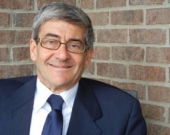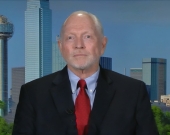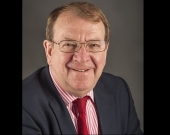Michael Knights to Gulan: The current protests in Iraq are a strong tremor but no one knows when the full earthquake will come
September 14, 2018
Exclusive Interviews

Michael Knights is a senior fellow at The Washington Institute, specializing in the military and security affairs of Iraq, Iran, Yemen, and the Gulf Arab states.Dr. Knights has traveled extensively in Iraq and the Gulf states, published widely on security issues for major media outlets such as Jane's IHS, and regularly briefs U.S. government policymakers and U.S. military officers on regional security affairs. Dr. Knights worked as the head of analysis and assessments for a range of security and oil companies, directing information collection teams in Iraq, Libya, and Yemen. He has worked extensively with local military and security agencies in Iraq, the Gulf states, and Yemen.Dr. Knights has undertaken extensive research on lessons learned from U.S. military operations in the Gulf during and since 1990. He earned his doctorate at the Department of War Studies, King's College London, and has worked as a defense journalist for the Gulf States Newsletter and Jane's Intelligence Review. In a written interview with our Magazine he answered our questions as following:Gulan: How do you analyse the current situation in Iraq especially with regard to the recent developments?
Dr. Knights: Iraq did not experience the Arab Spring because it came just eight years after regime change. But now, seven years after the Arab Spring tension is building in Iraq's less developed, hottest and most water-poor areas. The current protests are a strong tremor but no one knows when the full earthquake will come.
Gulan: Some say the the shia dominated government in Baghdad has alienated the Sunni and the Kurds and has not been able to satisfy the Shia population, do you agree with this?
Dr. Knights: No, that sounds like an exaggeration. I think this government is intended to be a Shia, Sunni and Kurdish government based on a core of Sairoon, KDP, Hikma, Fatah and some Sunni groups from Wataniyah and Nasr.
Gulan: obviously the governance system in Iraq is deeply dysfunctional, but do you expect the collapse of security and political situation?
Dr. Knights: No, I would expect the Iraqi government to speed up its formation and bring a new government in late October or early November. The security forces across southern Iraq will work with the Shia religious leadership and parties to quell the anger, making offers of more help to southern Iraqis.
Gulan: Undeniably Iran has been able to expand its influence in Iraq, so to what extent the influence of Iran has detrimental effects on the stability in Iraq?
Dr. Knights: The Iraqi parties - including the most powerful ones like Sairoon - want a more balanced relationship when Iran does not dominate them. On the other hand, Iran will now look at Iraq as a way to get around US sanctions, as a place to earn hard currency. Iraq will also be a competitor to Iran in the oil market, with countries like Turkey likely to look to Iraq to replace some crude that they no longer receive from Iran. So there is a clash of expectations: iraq wants more independence from Iran, and Iran wants more economic support.
Gulan: How USA can be helpful to Iraq to counter Iranian role in this country?
Dr. Knights: The US can help Iraq to resist Iranian domination by being patient and smart. For instance, by putting sanctions on some Iranian imports that hurt Iraq's economy but not the ones Iraq needs. The US can also provide financial intelligence to show how some Iranian backed politics are corrupt and have hidden money abroad.
Gulan: Do you see any possibility for the reemergence and resurgence of ISIS in Iraq, taken into consideration that the underlying causes that gave rise to this group?
Dr. Knights: ISIS has reset in provinces like Diyala and Kirkuk to early 2013 levels but with an important difference: in early 2013 ISIS was growing stronger but now it is growing weaker, because they lack the conditions they had in 2013. Today Syria is a less useful base for them, the Iraqi military is much stronger, the Peshmerga have international support.
Gulan: How do you envision the future relation between KRG and Iraqi government? and what are your recommendations for Kurdistan region in this regard?
Dr. Knights: I think the Kurds have a chance to play a bigger role in Baghdad than they have for years. Iraqi factions are ready to accept them and welcome a strong Kurdish pre sent in Baghdad. When looking at solid parties instead of coalitions (which can break apart), the KDP has the second largest block of seats.















